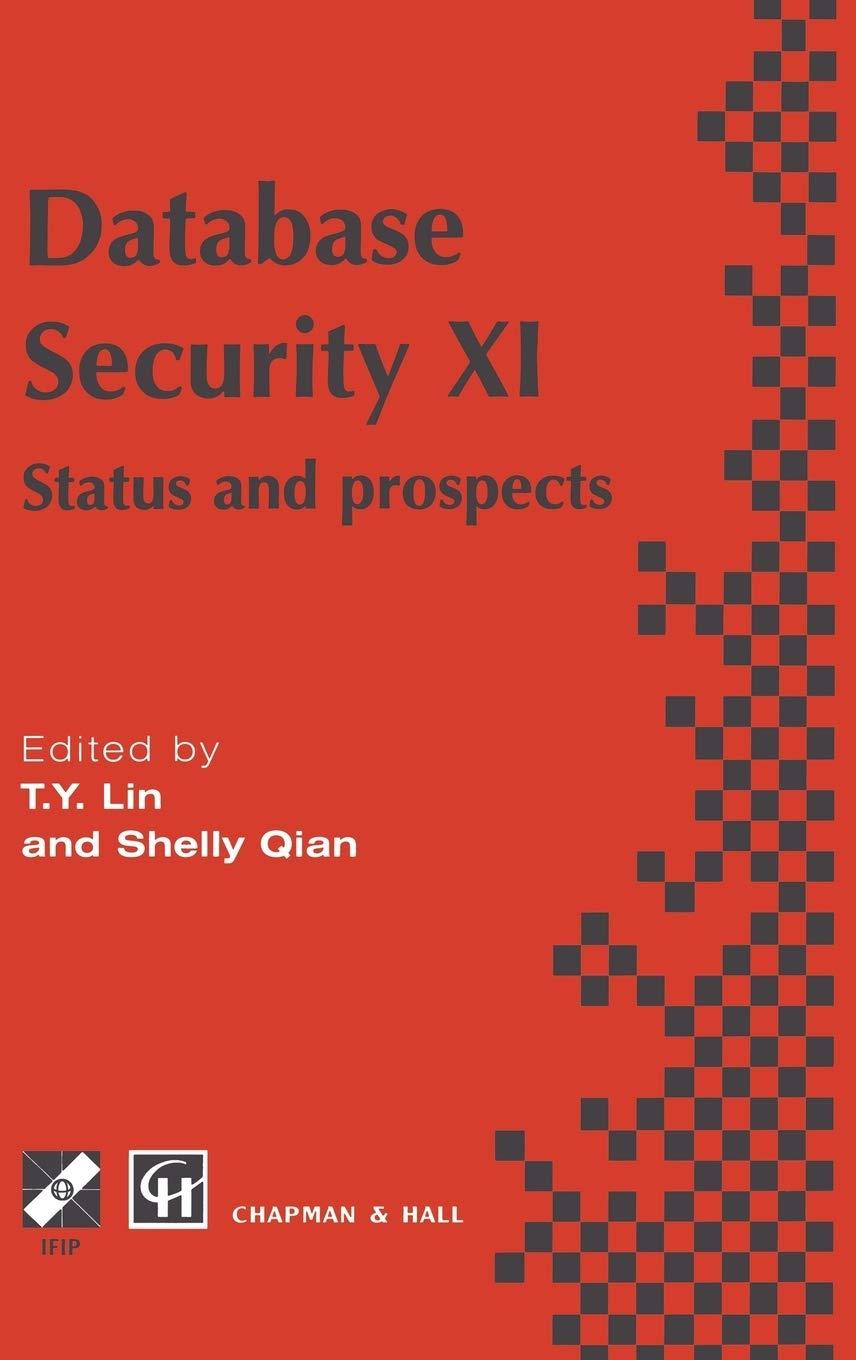Question
Problem 8. An algorithm for extracting discrete logarithms Let p be a large prime and g a fixed primitive root of p. Let h Z
Problem 8.
An algorithm for extracting discrete logarithms
Let p be a large prime and g a fixed primitive root of p. Let h  Z*p
Z*p
be the modular inverse of g, so g h  1 (mod p). Let a
1 (mod p). Let a  Z*p . Define the following lists of elements in Z*p : yi
Z*p . Define the following lists of elements in Z*p : yi  a hi (mod p), 0
a hi (mod p), 0  i
i  m - 1; zj
m - 1; zj  (gm)j (mod p), 0
(gm)j (mod p), 0  j
j  k - 1. Here, m is a positive integer (an as yet unspecified parameter) and k is the smallest integer with k
k - 1. Here, m is a positive integer (an as yet unspecified parameter) and k is the smallest integer with k  (p - 1)/m.
(p - 1)/m.
(b) Consider the following procedure for computing the discrete logarithm of a with respect to g. 1. Compute the list Y = (y0, y1 ... ym-1 ) 2. If 1  yi (mod p) for some i
yi (mod p) for some i  { 0, 1, ...m - 1} , then output i and quit. 3. Compute the list Z = (z0, z1, z2 ,... ) until an element zj is found that appears in Y. 4. Upon finding such a match, say zj = yi, output x
{ 0, 1, ...m - 1} , then output i and quit. 3. Compute the list Z = (z0, z1, z2 ,... ) until an element zj is found that appears in Y. 4. Upon finding such a match, say zj = yi, output x  j m + i (mod p - 1). Prove that this procedure terminates and outputs the discrete logarithm of a.
j m + i (mod p - 1). Prove that this procedure terminates and outputs the discrete logarithm of a.
(c) Assuming the worst case scenario (i.e. the entire list Z = (z0 , z1 ,...; zk-1) needs to be generated), how many modular multiplication are required to extract the discrete logarithm of a using the procedure above? Your count should be as accurate as possible (i.e. don't count modular multiplications that aren't needed). You may assume that the quantities m, k, h and gm (mod p) have been precomputed as they are independent of a. You may also ignore the cost of searching the list Y for an element z  Z.
Z.
(d) How should m be chosen to minimize the number of modular multiplication required by the procedure above? Explain your choice.
(e) Let p = 107. i. Use the primitive root test from class to verify that 2 is a primitive root of p. Show your work.
ii. Use the procedure from part (b) and your choice of m from part (d) to compute the discrete logarithm of 6 with respect to 2 in Z*107 . Show your work. You may want to verify that your final answer is correct.
.
Transcribed image text
Step by Step Solution
There are 3 Steps involved in it
Step: 1

Get Instant Access to Expert-Tailored Solutions
See step-by-step solutions with expert insights and AI powered tools for academic success
Step: 2

Step: 3

Ace Your Homework with AI
Get the answers you need in no time with our AI-driven, step-by-step assistance
Get Started


